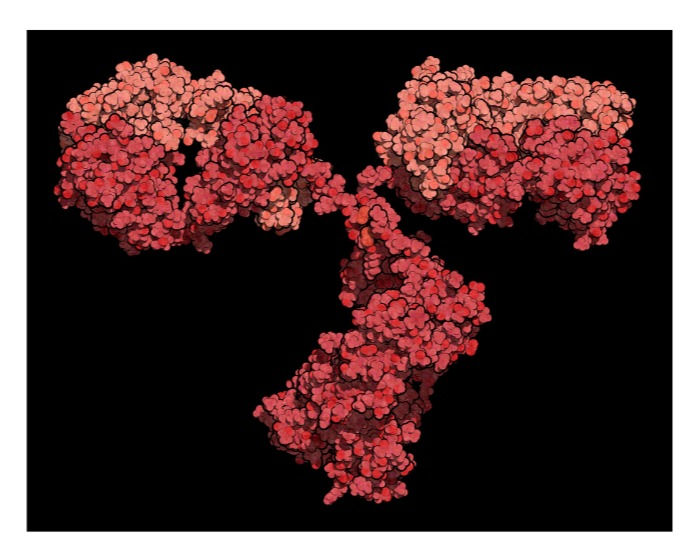Patient-reported outcomes (PROs) from KATHERINE: A phase III study of adjuvant trastuzumab emtansine
- Dr. Hugo Castro

- 27 sept 2020
- 3 Min. de lectura
Actualizado: 10 nov 2023
ASCO Annual Meeting ABSTRACTS, MEETING VIDEOS June 02, 2019
Patient-reported outcomes (PROs) from KATHERINE: A phase III study of adjuvant trastuzumab emtansine (T-DM1) versus trastuzumab (H) in patients (pts) with residual invasive disease after neoadjuvant therapy for HER2-positive breast cancer.
Authors:
Andreas Schneeweiss, Sibylle Loibl, Eleftherios P. Mamounas, Gunter von Minckwitz, Max S. Mano, Michael Untch, Chiun-Sheng Huang, Priya Rastogi, Pier Franco Conte, Veronique D'hondt, Andres Redondo, Ljiljana Stamatovic, Herve R. Bonnefoi, Hugo Raul Castro Salguero, Hans Holger Fischer, Tanya A. Wahl, Chunyan Song, Steven Blotner, Peter Trask, Charles E. Geyer; National Center for Tumor Diseases, Heidelberg University Hospital and German Cancer Research Center, Heidelberg, Germany; German Breast Group (GBG) and Centre for Haematology and Oncology Bethanien, Frankfurt, Neu-Isenburg, Germany; NSABP, and The Orlando Health UF Health Cancer Center, Orlando, FL; GBG, Neu-Isenburg, Germany; Instituto do Câncer do Estado de São Paulo, São Paulo, Brazil; AGO-B and HELIOS Klinikum Berlin-Buch, Berlin, Germany; National Taiwan University Hospital, National Taiwan University College of Medicine, Taipei, Taiwan; NSABP Foundation and University of Pittsburgh Cancer Institute, Pittsburgh, PA; University of Padova, Padova, Italy; Institut Régional du Cancer de Montpellier, Montpellier, France; Hospital Universitario La Paz-IdiPAZ, Madrid, Spain; Institute for Oncology and Radiology of Serbia, Belgrade, Serbia; Institut Bergonié Unicancer and Bordeaux University, Bordeaux, France; Grupo Medico Angeles, Guatemala City, Guatemala; GBG and Evangelische Kliniken Gelsenkirchen, Gelsenkirchen, Germany; Swedish Cancer Institute, Issaquah, WA; Genentech, Inc., South San Francisco, CA; NSABP, and Virginia Commonwealth University Massey Cancer Center, Richmond, VA.
Background: The phase 3 KATHERINE (NCT01772472) study, met its primary endpoint by demonstrating significantly improved invasive disease-free survival with adjuvant T-DM1 compared to H in pts with residual invasive disease after neoadjuvant chemotherapy plus HER2-targeted therapy. PROs are reported here.
Methods: Eligible pts had HER2-positive early breast cancer, received taxane- and H-containing neoadjuvant therapy (with/without anthracyclines) followed by surgery, and had residual invasive disease in the breast and/or axillary nodes. Pts were randomized to 14 cycles of adjuvant T-DM1 (3.6 mg/kg IV q3w) or H (6 mg/kg IV q3w) and adjuvant endocrine and radiation therapy per standard of care. The EORTC Quality of Life Questionnaire–Core 30 (QLQ-C30) and QLQ–Breast Cancer (QLQ-BR23) were completed at screening, at day 1 of cycles 5 and 11, within 30 days after study drug completion, and at 6 and 12 months’ follow-up.
Results: Of 1,486 pts randomized (T-DM1, n = 743; H, n = 743), 612 (82%) and 640 (86%), respectively, had valid baseline and ≥1 post-baseline PRO assessments. During the study, pts in both arms had similar mean scores on the QLQ-C30 and QLQ-BR23 function and symptom scales. There was no clinically meaningful change (≥10 points) from baseline in the mean scores in either arm, including on symptoms similar to AEs seen with T-DM1 (eg, fatigue). While more pts in the T-DM1 arm reported clinically meaningful deterioration in role functioning (49% vs 41%), appetite loss (38% vs 28%), constipation (47% vs 38%), fatigue (66% vs 61%), nausea/vomiting (39% vs. 30%), and systemic therapy side effects (49% vs 36%) at ≥1 assessment, the proportion reporting clinically meaningful change in functioning was similar between arms at any given assessment.
Conclusions: Mean scores showed only small deterioration from baseline in patient-reported treatment-related symptoms in both study arms. While more pts in the T-DM1 arm reported deterioration at some point in several symptoms, baseline global health status and functioning were generally maintained in both arms over the treatment course. Clinical trial information: NCT01772472
Esquema molecular del trastuzumab

#hugoonco, #oncosarurio,#grupoangeles,#hugocastro,#cancerguate,#biocancer,#cancer,#cancermama,#cancergastrico,#cancerdecolon,#cancerdeprostata,#cancerdehigado,#cancerdepulmon,#cancercerebral,#cancerdecabezaycuello,#cancerdeesofago,#cancerdepiel,#cancerdetiroides,#geneticadelcancer,#cancerygenetica, #oncogen,#gensupresor,#cancerhereditario,#epidemiologiadelcancer,#cancerguatemala,#postgradodeoncoguate,#asociacionhematooncologiadeguatemala,#colegiodemedicosdeguatemala,#asociaciondemedicinainternaguatemala,#incanguatemala,#hugoguate,#hugocastrooncologo,








Comentarios